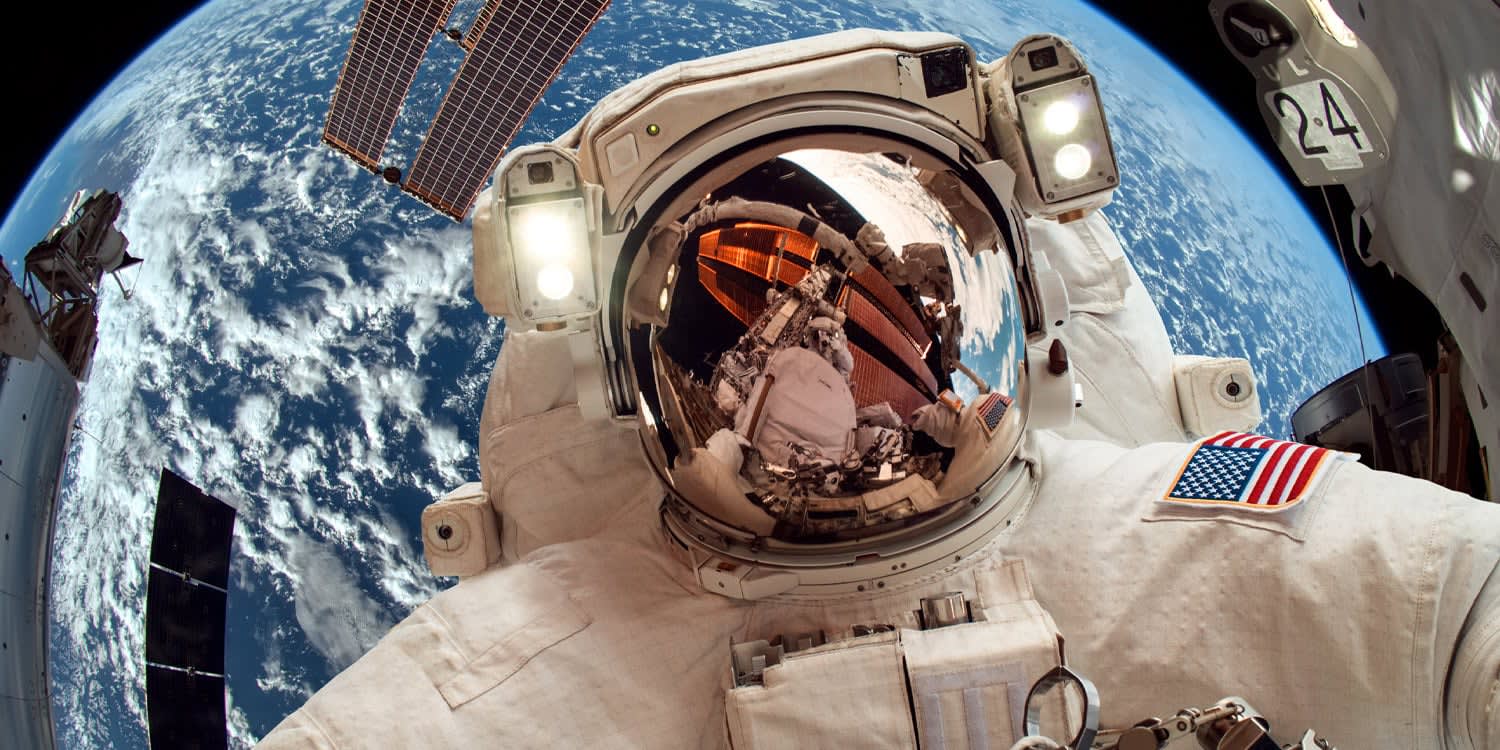Astronaut sleep study reveals how spaceflight alters rest patterns

The research findings show the varying and changing patterns of sleep during protracted space flights.
Sleep is essential for physical wellbeing, emotional control, and brain function, especially when facing high-pressure situations such as space missions. Unfortunately, astronauts often experience disrupted sleep patterns while in space. Various factors, including stress, microgravity, body clock irregularities, and environmental factors on the spacecraft, are believed to lead to poorer sleep quality and quantity.
"Preliminary research indicates that astronauts typically get around six hours of rest while in space; however, there is a lack of in-depth investigation into the effects of space-based slumber on the human brain. Determining the changes that occur during sleep while in space is a complex task, primarily because it necessitates the use of electrodes on an individual's scalp in order to monitor brain activity," stated study author Dr Erin Flynn-Evans, director of the Fatigue Countermeasures Laboratory based at the NASA Ames Research Centre.
Five male participants, with an average age of 43.5 years, were chosen for their space missions to the Mir space station between 1996 and 1998. They used a device known as the Nightcap, which monitors sleep stages based on changes in the eyes and body. Data was obtained during four separate periods: three 12-night blocks before the space journey, two 12-night blocks after returning to Earth, and several nights whilst in space.
These data were collected using a system that monitored changes in eye movements to help us figure out when astronauts were in REM or non-REM sleep, as our colleague Flynn-Evans explained. These sleep stages signify different brain processes. For instance, slow-wave sleep is connected to waste removal in the brain, while REM and Stage 2 sleep are linked to learning and memory consolidation, among other roles.
Understanding how space travel impacts the brain during sleep enables us to predict potential issues caused by not getting sufficient sleep of a specific kind. This knowledge also helps us pinpoint targets to inform the development of countermeasures that can enhance sleep quality and duration during space travel.
Researchers studied data from a total of 256 nights of sleep, using a twenty-four hour schedule that ran in line with Moscow time throughout their spaceflight, without any significant alterations to their daily routines.
Preliminary research confirmed that individuals in space exhibited considerable alterations in their sleep patterns during their time in space. On average, participants in the study slept for around one hour less while in space than when on Earth, with total sleep time falling from 6.7 hours before the mission to 5.7 hours during the mission. The proportion of time spent sleeping whilst in bed decreased from 89% before flight to 73% during spaceflight. The time taken to fall asleep nearly doubled in space, and the period of wakefulness after falling asleep more than trebled.
Our research indicates distinct changes to the structure of people's sleep patterns during the mission, and these alterations developed during its duration," said lead researcher Oliver Piltch, a Harvard College undergraduate. "Our conclusions tally with previous research into how sleep continuity is affected. We observed considerable drops in the quality of people's sleep through the mission, even though they were in bed for the same amount of time as usual.
During space travel, both REM and non-REM sleep were found to be decreased. REM sleep comprised only 19.6% of the total sleep time when in space compared to 26.4% beforehand. Nevertheless, over the duration of the missions, REM sleep levels partially rebounded to their original levels, unfortunately at the expense of non-REM sleep.
Getting a good night's sleep is essential for performing at your best, whether you're on Earth or on a mission in space," Flynn-Evans explained to a global audience in the international media. "As it's also been discovered, space travel can actually have an impact on how we usually sleep.
Interestingly, the research indicates that the adjustments to sleep patterns seen during space travel dissipated once individuals returned to Earth, with their sleep routines returning to what they were beforehand, indicating that the changes experienced during space travel were specific to the space environment and did not have a lasting impact on sleep systems.
The experts called for further examination to verify these results. “We were limited due to the relatively small amount of astronauts in space at any given time,” Mr. Flynn-Evans pointed out. “Additional studies will be required to validate these findings before any actions are taken. We would also like to conduct further research using EEG technology on a larger group of participants to confirm our initial results.”
This article was written by Oliver Piltch, Erin E. Flynn-Evans, Millennia Young, and Robert Stickgold.
Post a Comment for "Astronaut sleep study reveals how spaceflight alters rest patterns"